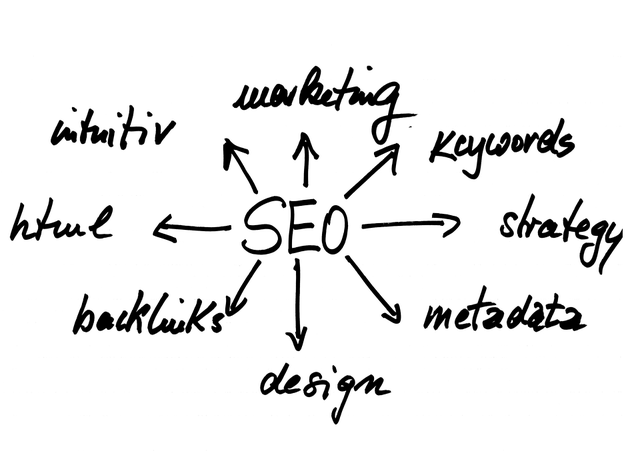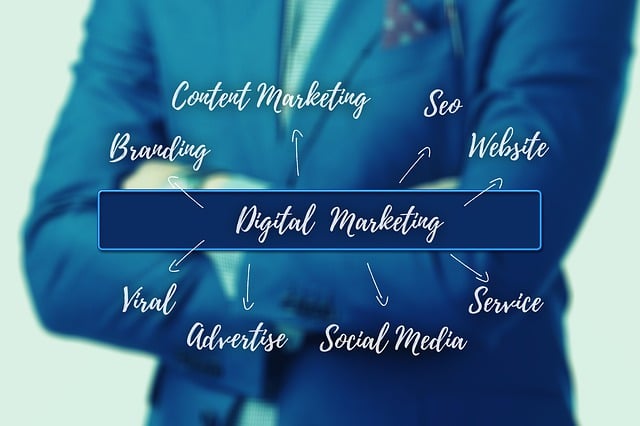SEO Services are a comprehensive strategy to enhance online visibility and drive organic traffic to websites. This involves multiple components: keyword research for relevant content, technical optimization for site speed and mobile responsiveness, on-page SEO for page elements, off-page SEO for backlinks, local SEO for regional audiences, and continuous measurement through KPIs. By combining these tactics, effective SEO Services can increase website rankings, attract target audiences, and foster business growth in today's digital landscape.
In today’s digital landscape, a strong online presence is paramount for any business. Understanding SEO Services is essential to climb search engine ranks and attract target audiences. This comprehensive guide breaks down the key components of SEO Services, from fundamental concepts like on-page and off-page optimization, to technical aspects ensuring website accessibility. We’ll explore local SEO strategies for targeted local reach and delve into measuring success through KPIs. Get ready to revolutionize your online visibility.
Understanding Website SEO: The Basics of Search Engine Optimization

Search Engine Optimization, or SEO, is a set of strategies and techniques designed to improve a website’s visibility and ranking in search engine results pages (SERPs). At its core, SEO revolves around understanding how search engines crawl, index, and rank websites. By optimizing various elements of a site, such as keywords, content quality, site structure, and user experience, businesses can attract more organic traffic from relevant audiences.
Effective SEO services go beyond keyword stuffing and meta tag optimization. They involve in-depth keyword research to identify terms that potential customers are using when searching for products or services related to the business. It also entails creating high-quality, engaging content that meets user intent and keeps visitors engaged on the site. Additionally, technical SEO aspects like ensuring mobile-friendliness, optimizing page load speeds, and implementing structured data markup help search engines understand the content better, leading to improved indexing and rankings.
Key Components of Effective SEO Services: A Comprehensive Breakdown

Effective SEO services hinge on a strategic combination of several key components, each playing a vital role in enhancing online visibility and driving organic traffic. At their core, these services encompass keyword research, which involves identifying relevant terms that potential customers use to search for products or services similar to yours. Optimizing content around these keywords ensures your website appears in relevant searches, boosting its chances of attracting targeted visitors.
Beyond keyword optimization, effective SEO services also focus on technical optimization, ensuring your website is structured in a way that’s easily crawlable and indexed by search engines. This includes optimizing site speed, enhancing mobile responsiveness, implementing structured data markup, and ensuring proper sitemap creation. Additionally, building high-quality backlinks remains an indispensable component of SEO, as it signals to search engines the authority and trustworthiness of your website.
On-Page SEO: Optimizing Your Website for Search Engines

On-Page SEO is a crucial component of any comprehensive SEO strategy, and it involves optimizing individual web pages to rank higher in search engine results. This includes a variety of techniques, such as conducting keyword research to identify relevant terms your target audience is using, and then strategically placing these keywords throughout your website’s content, meta tags, and headings.
Additionally, On-Page SEO ensures that your website provides a seamless user experience by implementing best practices for page load speed, mobile responsiveness, and clear navigation. Search engines prioritize websites that are easy to use and provide value to visitors, ultimately leading to higher search rankings and increased organic traffic through effective SEO services.
Off-Page SEO Strategies: Building Authority and Backlinks

Off-page SEO involves strategies aimed at improving your website’s authority and visibility from outside your site. One key component is building backlinks, which are essentially links from other websites pointing to yours. High-quality backlinks from reputable sources signal to search engines that your site is a trusted source of information, boosting its authority and ranking potential. This process helps search engines understand the relevance and value of your content, leading to improved search rankings for relevant keywords.
Efficient off-page SEO strategies can include guest blogging, where you contribute articles to other blogs in your niche, securing backlinks in your bio or within the content. Social media engagement is another powerful tool; sharing your content on social platforms not only increases visibility but can also attract natural backlinks as users and influencers share your material. Remember, the quality of these backlinks matters; a few high-authority links are worth more than numerous links from low-quality or irrelevant sites.
Technical SEO: Ensuring Your Website is Search-Engine Friendly

Technical SEO plays a pivotal role in ensuring your website is search-engine friendly and optimized for maximum visibility. It involves streamlining various technical aspects that impact how search engines crawl, index, and rank your site. This includes optimizing crucial elements like page speed, mobile responsiveness, XML sitemaps, robots.txt files, and schema markup to enhance user experience and signal to search algorithms that your website is credible and worth indexing.
By addressing these technical factors, you enable search engines to effectively understand your site’s content, improve crawling efficiency, and boost your website’s performance in both organic search results and local SEO efforts. Ultimately, a robust Technical SEO strategy acts as a foundation for effective digital marketing, driving more traffic, higher rankings, and better conversions through the power of SEO services.
Local SEO: Targeting Your Local Audience Effectively

Local SEO is a powerful tool for businesses to connect with their target audience right where they are—geographically and digitally. By optimizing your website for local search, you can ensure that when customers in your area are seeking products or services like yours, your business appears at the top of local results. This means potential clients are more likely to choose your company over a competitor, increasing foot traffic and sales.
Effective Local SEO strategies involve claiming and optimizing your Google Business Profile (formerly Google My Business), ensuring consistent NAP (Name, Address, Phone number) citations across the web, and creating localized content that resonates with your local audience. Incorporating location-specific keywords and providing up-to-date information about your business’s hours, services, and promotions helps search engines understand your relevance to local customers.
Measuring Success: Key Performance Indicators (KPIs) for SEO

Measuring success is a critical aspect of any digital strategy, and SEO services are no exception. Key Performance Indicators (KPIs) provide a clear framework to assess the effectiveness of your SEO efforts. One of the primary KPIs is organic traffic, which refers to visitors coming to your website through search engine results without direct payment for advertising. Tracking this metric helps gauge the overall visibility and reach of your online content.
Another essential KPI is click-through rate (CTR), representing the percentage of users who click on a specific link or ad after viewing it in search results. High CTR indicates that your SEO strategies are compelling enough to attract clicks, suggesting relevant and appealing content. Additionally, monitoring conversion rates—the percentage of visitors completing a desired action, such as making a purchase or signing up for a newsletter—is vital for understanding the business impact of your SEO services. These KPIs collectively offer valuable insights into the performance of your website and guide adjustments to your SEO strategies.
The Future of SEO: Trends and Innovations to Watch

The digital landscape is constantly evolving, and so does the realm of search engine optimization (SEO). As we move forward, several trends and innovations are set to shape the future of SEO services. One of the most significant shifts is the increased emphasis on user experience. Search engines are prioritizing websites that offer fast loading times, easy navigation, and engaging content, ensuring folks have a seamless browsing experience. This means SEO professionals must focus on optimizing for mobile devices and creating structured, accessible sites.
Another notable trend is the rise of voice search optimization. With virtual assistants becoming more ubiquitous, users are relying on voice commands to find information. Optimizing content for long-tail keywords and natural language queries will be crucial for improving visibility on voice search engines. Additionally, artificial intelligence (AI) and machine learning algorithms are playing a more prominent role in SEO, enabling advanced analytics and personalized user experiences. These innovations require SEO services to adapt quickly and stay ahead of the curve to remain relevant in the digital market.
